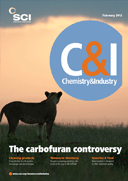Probiotics could enhance your recovery from a heart attack, while the microbes in your gut could determine your susceptibility to heart attacks. Rats fed a probiotic juice containing Lactobacillus plantarum showed decreased levels of the hormone leptin (41%) – used as a marker for tissue injury; smaller heart attack events (29% reduction); and greater recovery of blood supply to the heart (23%), a recent study has found.
‘This is the first time anyone has shown a probiotic bacterium that lives in the intestines and is otherwise beneficial to health may be managed in order to reduce the occurrence of a heart attack and the [resulting] injury,’ said study author John Baker from the the Medical College of Wisconsin in Milwaukee, US (FASEB J., doi: 10.1096/fj.11-197921).
He added that the level of protection seen could be compared with drugs now used to treat heart attacks. And the findings could also lead to novel therapies to prevent the heart attack from ever happening, he said.
Molecular pharmacist Hemal Patel, of the University of California, commented: ‘This was something I had never thought of or seen in the literature, but makes sense from a holistic view.’
However, Patel cautions that there are lots of differences between rats and humans. ‘I wouldn’t say that everyone who has a history of this [heart disease] in their family start eating probiotics. That is far from reasonable at this stage, but I think more research needs to be done to see if there is truly a connection.’
Baker hopes the research may help reveal a person’s probability of having a heart attack, adding: ‘This scientific breakthrough now provides opportunities for novel diagnostic tests, as faecal bacteria or bacteria products present in the blood may serve as indicators of susceptibility to heart attacks.’
In previous animal studies, meanwhile, consumption of L. plantarum was found to decrease levels of Escherichea and Salmonella bacteria, reduce bacterial movement across the intestinal lining, reduce inflammatory responses and increase immune activity.





